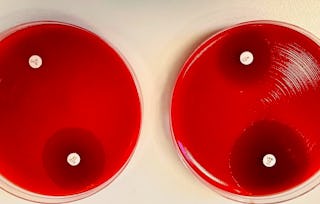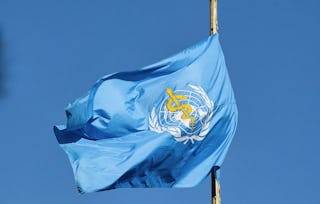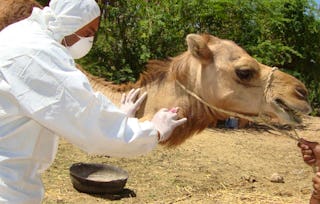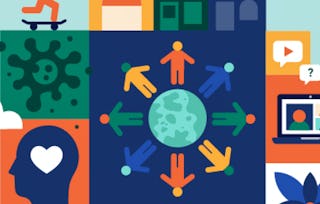Sonar-Global is a collaborative work to mobilize social sciences against infectious threats. It is a sustainable international network to strengthen the active participation of the social sciences in the prevention and response to infectious threats, including those posed by antimicrobial resistance (AMR) and vaccine hesitancy.

Gain next-level skills with Coursera Plus for $199 (regularly $399). Save now.

What you'll learn
To render visible the social dimensions of AMR
To learn about social science perspectives and tools
To learn about interdisciplinary collaboration
Skills you'll gain
Details to know

Add to your LinkedIn profile
6 assignments
See how employees at top companies are mastering in-demand skills

There are 4 modules in this course
This module introduces the course, presents the definitions of AMR and social sciences, and explore the complexity of AMR. Also, introduces AMR from a biomedical and social science perspective and shows the role that social science/social scientists play(s) in this field.
What's included
7 videos11 readings2 assignments3 plugins
This module aims to portray the social science dimensions of AMR from a micro (individual) to a macro (governance) level. The level of people and the public, people’s experiences with and knowledge of antimicrobials and the relation with its provision, consumption and the wider infrastructures will be explored.
What's included
7 videos8 readings1 assignment
This module aims to portray the social science dimensions of AMR from a micro (individual) to a macro (governance) level. In terms of systems and environments, insights will be provided on the dynamics and interactions related to the relevant systems surrounding AMR and the internal and external influences. The development and implementation of AMR policies from a local to a global level and the matter of AMR framing will be covered, related to AMR institutions and policies.
What's included
8 videos9 readings2 assignments
This module aims to portray interdisciplinary, collaborative ways of bringing about change in the field of AMR. It will reflect upon how to work on AMR collaboratively while also zooming into the synergies and tensions of working together between different disciplines. Moreover, it will present social science methods - social survey, participant observations, interviewing and implementation science - to achieve AMR transformations in terms of behaviour change and community engagement and awareness.
What's included
4 videos8 readings1 assignment8 plugins
Offered by
Explore more from Governance and Society
 Status: Preview
Status: PreviewTechnical University of Denmark (DTU)
 Status: Preview
Status: Preview Status: Preview
Status: PreviewUniversity of Geneva
 Status: Free
Status: FreeUniversity of Colorado Boulder
Why people choose Coursera for their career





Open new doors with Coursera Plus
Unlimited access to 10,000+ world-class courses, hands-on projects, and job-ready certificate programs - all included in your subscription
Advance your career with an online degree
Earn a degree from world-class universities - 100% online
Join over 3,400 global companies that choose Coursera for Business
Upskill your employees to excel in the digital economy
Frequently asked questions
To access the course materials, assignments and to earn a Certificate, you will need to purchase the Certificate experience when you enroll in a course. You can try a Free Trial instead, or apply for Financial Aid. The course may offer 'Full Course, No Certificate' instead. This option lets you see all course materials, submit required assessments, and get a final grade. This also means that you will not be able to purchase a Certificate experience.
When you purchase a Certificate you get access to all course materials, including graded assignments. Upon completing the course, your electronic Certificate will be added to your Accomplishments page - from there, you can print your Certificate or add it to your LinkedIn profile.
Yes. In select learning programs, you can apply for financial aid or a scholarship if you can’t afford the enrollment fee. If fin aid or scholarship is available for your learning program selection, you’ll find a link to apply on the description page.
More questions
Financial aid available,



